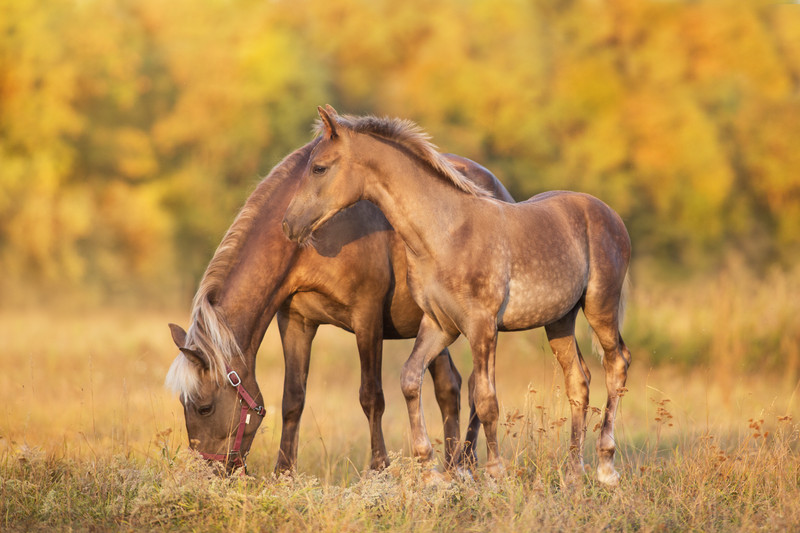As temperatures drop, your horse’s risk of colic drastically increases. And because colic is difficult to prevent and usually unpredictable, the best kind of prevention is with good digestive health. As horse owners, it’s our job to be proactive in reducing the risk of colic by taking the right steps as the seasons change.
1. Ensure Your Horse has Fresh, Clean Water
Be sure your horse always has access to fresh, clean water at all times, day and night. If you have automatic, heated waterers, check them regularly for free-flowing water. If possible, try to give your horse warmer water. Horses tend to drink more water in colder weather if the water is warm. You can also increase your horse’s water intake by providing 1 oz. of salt twice daily.
2. Reduce Grain-Based Feed
Some horse owners might think that more grain intake is better when it gets colder. However, grain-based feeds can actually increase your horse’s risk of colic. So to make sure your horse is getting the nutrients it needs, we recommend increasing the roughage in his diet through grass or hay. And for horses that need added calories, you can use beet pulp to increase the calories.
If your horse does receive grain, consider giving two or three smaller portions throughout the day instead of a single feeding, which can overload the digestive tract.
3. Free Choice Forage
A horse’s digestive tract requires roughly 1.5-2% of their body weight in forage each day. Because horses are designed to graze, it’s recommended they get 24/7 access to forage. You can utilize slow-feed hay nets to create a grazing environment and lengthen feeding time.
4. Give Plenty of Turnout Time
If the weather allows for it, turn your horses out to pasture as much as possible. Less stall time and more unrestricted movement helps promote gut function and typically makes for a happier horse. This especially rings true if your horse is not used to stalling. As long as they are not wet/shivering and have access to a shelter/lean-to, in most cases they are okay to leave outside.
5. Ingredients that may lend Support
Gelatin is the name for cooked collagen which is the most abundant protein found in our body. It is primarily made up of the amino acids glycine and proline. Supports a healthy stomach lining/gut mucosa by providing a natural protective barrier against the abrasiveness of gastric juices.
Licorice is one of the most widely used herbs for people and animals in both Western and Chinese medicine. Sweet and soothing, it supports a natural inflammatory response in the gastric system. The deglycyrrhized form is preferred as it eliminates the risk of adverse side effects when plant is used whole.
Slippery Elm is obtained from the bark of a tree native to North America. Slippery Elm is rich in mucilage, a soluble fiber that becomes gel-like when wet. Helps to coat and soothe the mucosal membrane of the digestive tract.
Levucell® SC is a powerful yeast, which is clinically proven to help reduce the risk of colic by supporting hind gut function. Levucell® SC enhances fiber digestion in the hind gut, and can offset negative side effects that come with high-starch diets. It also provides a direct source of nutrients to help nourish good bacteria and stabilize digestive flora during periods of stress for overall health.
*Levucell® SC is clinically researched and a registered trademark of Lallemand Specialties, Inc. (France)

